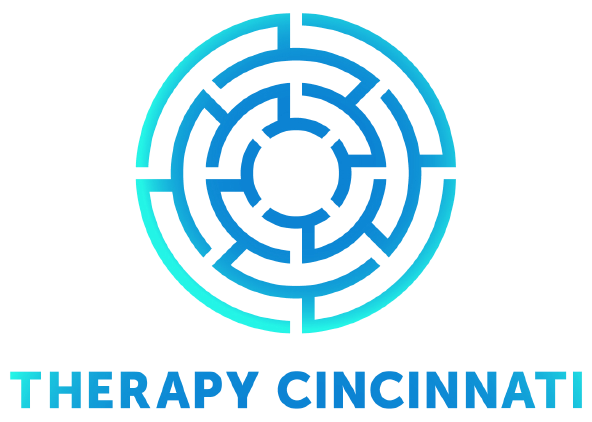Anxiety is your body’s natural response to feeling under threat. It can cause you to feel worried, afraid, stressed, or apprehensive about what is yet to come. Giving a speech, going to a job interview, or the first day of school may cause you to feel anxious.
Anxiety is a completely valid and normal part of the human experience. Yet, for some of us it can seriously interfere with our daily lives, cause to us to avoid certain situations, and feel depressed.
When Anxiety Becomes a Problem
It’s natural to think about the outcomes of experiences we deem important. However, if you find yourself constantly worrying about the potential of negative outcomes, overtime, your anticipation of things to go wrong can turn into avoidance.
If you start avoiding places, situations, or people due to being constantly worried and fearful of what could go wrong, you may develop an anxiety disorder. Anxiety disorders are the most common mental illness in the U.S., affecting 40 million adults over the age of 18, according to the Anxiety and Depression Association of America.
Symptoms of Anxiety
Some symptoms you might be experiencing can include:
· Fatigue
· Tense muscles
· Trouble with sleeping
· Irrational fears
· Panic attacks
· Irritability
· Difficulty concentrating
· Feelings of isolation
· Shame
· Nausea
· Intrusive thoughts
Through plenty of research and experience, I’ve come up with several ways to help you overcome anxiety, ranging from traditional methods of medication and therapy to other lifestyle changes.
How to Overcome Anxiety
Despite being such a commonly shared experienced amongst Americans, overcoming anxiety is a deeply personal journey. What works for me might not work for you, and vice versa.
The good thing is, anxiety disorders are highly treatable and can be managed with medication, psychotherapy, other remedies, or a combination of the three.
Here are a few ways to overcome anxiety that might work for you.
1. Therapy
There are multiple therapeutic approaches in treating anxiety. Each approaches’ goal is to help you understand, manage, and overcome your anxiety. Whichever treatment you seek should be tailored to your unique needs and diagnosis. Some of the different types of therapy include Cognitive Behavioral Therapy, Exposure Therapy, Internal Family Systems, Somatic Therapy, and EMDR.
2. Medication
There are various types of medication that may be prescribed by your mental health professional. Some forms of medication offer immediate relief from anxiety attacks while others are more long-term. Here are three forms of medication suited for anxiety treatment:
· Benzodiazepines: Typically used to treat panic attacks, benzodiazepines affect the central nervous system by slowing down the body’s functions by increasing the effects of the brain chemical gamma amino butyric acid.
· Beta blockers: used to reduce the physical symptoms of anxiety, such as sweating, fast heartbeat, and trembling.
· Selective serotonin reuptake inhibitors (SSRIs): Typically used for chronic anxiety problems that require ongoing treatment, SSRIs block the action of the serotonin transporter in the brain which increases level of serotonin, improving generalized anxiety disorder, panic disorders, and social anxiety.
It’s important to remember that certain types of medication might not be best suited for you and to talk to your mental health professional about your unique needs. Make sure you take the medication exactly as your mental health professional prescribes it and be aware of potential side effects.
3. Other options for anxiety relief
There are many lifestyle changes you can make to help you overcome your anxiety, such as:
· Exercising often. Research shows that adults who exercise regularly experience significantly fewer anxiety and depressive symptoms. Exercising can also increase your self-esteem and make you feel strong mentally and physically.
· Develop a well-balanced diet. Since a large percentage of serotonin receptors are found in the lining of the gut, some research suggests the importance of eating a balanced diet with omega-3 fatty acids, zinc, magnesium, B vitamins, antioxidants, and probiotics to help keep your blood sugar stable, and lessen feelings of anxiety.
· Mindfulness and meditation. Mindfulness is a skill that is developed through a consistent practice of meditation. Being mindful involves learning to keep our attention focused on the present moment, and refrain from being reactive. It can teach you how to regulate your thoughts and emotions.
· Decreasing consumption of alcohol, caffein and smoking. Certain substances like alcohol can have serious consequences if you’re being treated for anxiety and can negatively impact any medications you may be on. Alcohol changes levels of serotonin and other neurotransmitters in the brain, ultimately worsening anxiety.
Anxiety disorders are highly treatable through therapy, medication, lifestyle changes, or a combination of the three. If you are experiencing anxiety, you’re not alone. You deserve to feel happy, relaxed, and healthy, and the therapists at Therapy Cincinnati can help you get there.




